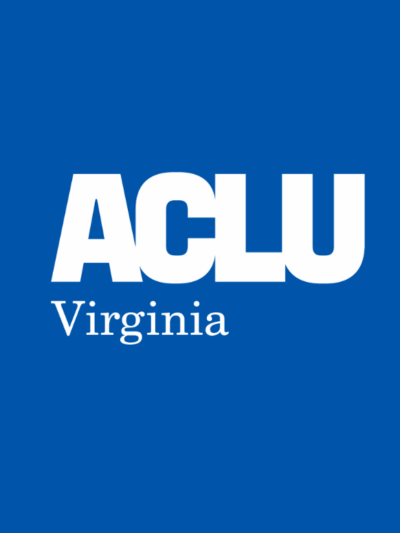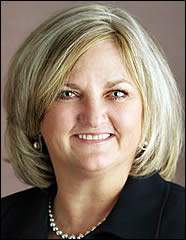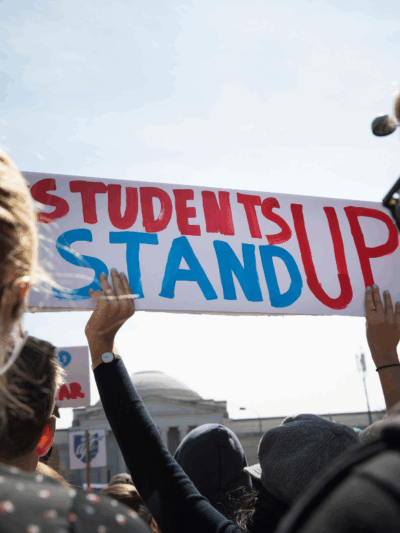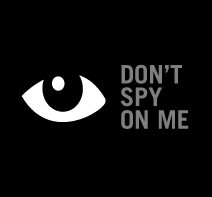News & Commentary
Nov 17, 2016
WATCH: Know Your Rights at Protests and Demonstrations
Please re-watch our Nov. 17, 2016, Facebook Live conversation on the topic of Know Your Rights at Protests and Demonstrations.

Jun 03, 2016
Planning to Attend a Political Rally? Whether in Support or Protest, Be Sure to Know Your Rights
The current presidential election cycle has already shown itself to be one marked with protests, volatile rhetoric and violence.Images of protestors and counter-protestors being dragged out of campaign rallies have dominated the media. As the primary season moves towards conventions and the general election begins, the ACLU of Virginia will be monitoring protest activities in Virginia to ensure First Amendment rights are protected and people are not subjected to discrimination by police or political officials.Virginia is a political swing state and candidates undoubtedly will plan more rallies in the Commonwealth as the November election nears. Many rally attendees may not know the full scope of their rights in Virginia. Additionally, many may be visiting from states that have additional protections against discrimination that Virginia does not have. It is important to distinguish what protections are afforded by federal law and what protections, or lack of protections, are afforded by Virginia.The First Amendment of the U.S. Constitution guarantees the right to protest and demonstrate in public. This right is also guaranteed to counter-protesters who may choose to show up to a rally. However, depending on the circumstances, the rights of the rally organizers may trump the rights of protesters.First, if a campaign rally is by invitation only and held on private property, the organizers have a right to exclude whomever they choose. Even if the rally is held in a public space or is open to the public, organizers have a right to exclude protestors, or anyone who brings an opposing opinion or counter-message. Courts have routinely found that organizers of a rally have the right to control their own message. Most often, organizers rent space for rallies and gatherings, which gives them the right to exclude disruptive people for “trespass” and enlist local police to eject such people.There is a caveat, however. If the rally welcomes the general public, even if it is held at a private location, organizers must abide by anti-discrimination, “public accommodation” laws. Title II of the Civil Rights Act of 1964 prohibits discrimination in public accommodations based on race, color, religion, national origin. The Americans with Disabilities Act (ADA) prohibits discrimination based on a disability. For many states, this protection is expanded through state law to include prohibitions on discrimination based on sex, sexual orientation, gender status, veteran status and even sometimes age and political affiliation.Clearly, then, a campaign cannot ban all Muslims from its rallies. However, public accommodation laws are less clear in Virginia when it comes to discriminating against women or members of the LGBTQ community.The Virginia Human Rights Act (VHRA), on its face, seems to ban discrimination in public accommodations against a long list of individuals including “sex, pregnancy, childbirth…” and so forth. But the law doesn’t provide a private cause of action for those facing discrimination. The VHRA only states that it is the “public policy” of Virginia not to discriminate but offers no real remedy to women and members of the LGBTQ community. Individuals could possibly rely on local anti-discrimination ordinances to seek a remedy, but only a handful of local ordinances expand this protection.So, effectively, a campaign could host a rally in Virginia and potentially deny access to anyone organizers thought was gay, lesbian, or bisexual. They could turn away anyone they thought to be transgender. They could even eject women without any fear of a lawsuit.In 2016, with a female candidate for president of the United States, this lack of protections in Virginia is embarrassing but real. Aside from monitoring rallies this election season, the ACLU of Virginia will continue to fight to correct this injustice.Women and members of the LGBTQ community should not fear being singled out and told they cannot enter a place that is allowing others to attend. That sort of stigma is especially harmful, given Virginia’s history of segregation.In any case, if you choose to participate in a public rally or demonstration this election season, it is critical that you Know Your Rights!

Feb 24, 2016
All Viewpoints Welcome in a Public Forum
The ACLU of Virginia commends the Jefferson-Madison Regional Library Board of Trustees for its recent decision to create a new Freedom of Speech case for public displays at Charlottesville’s Central Branch.Previously, the library had required such displays be “age appropriate” and “balanced in their presentation of public issues.” This suggested that decisions about displays by the library (a government agency) would be content or viewpoint driven. The library’s board was forced to re-examine that policy after some patrons complained about a pro-abortion rights display sponsored by the Charlottesville chapter of the National Organization for Women.Last week, the board actually widened its policy, rightly recognizing that free speech must include discussion of challenging and even divisive issues, such as religious, political and social messages. The new display case will be in an area that only adults use and placed at least 20 feet from the front door. Only obscene, defamatory or material that incites is prohibited.While certain displays might continue to offend some patrons’ sensibilities, it should be clear now that the library has created a public forum. Its contents represent the views of their sponsors and not the library or government. Should anti-abortion advocates choose to exercise their right to free speech, they can take a turn sharing a message in the display case.When government creates a public forum, all viewpoints are welcomed. Kudos to the library board for understanding that opening up rather than contracting the forum is the right way to ensure free speech.

Jan 21, 2016
Get a Warrant, Get Consent or Get Out
You may not realize this, but the government and corporations regularly access our personal, private information – and even that of our children – without our knowledge or consent, and on a daily basis. They use it for profit. They use it to track our location. That’s right—it’s hard to believe, but it’s true.These regular incursions into our privacy are made easier by the fact that our laws have failed to keep up with new technologies. As technology has advanced, our digital privacy laws remain stuck in the digital Dark Ages. This means that emails, text messages, location information and all of our digital data have been open to warrantless police surveillance.Virginia’s Sen. Chap Petersen (D-Fairfax) and Del. Mark Dudenhefer (R-Stafford), along with chief House co-patron Del. Rich Anderson (R-Woodbridge), have taken a critical step forward to ensure Virginians are no longer vulnerable to such government overreach. The Virginia Electronic Privacy Act (ECPA) would require law enforcement to obtain a warrant before accessing electronic information about our identities, where we go, who we know and what we do. This bill will provide reasonable privacy protections for our emails and other electronic information where federal law has failed to do so.Virginia residents should know that the government is working to protect their privacy, not violate it, and the majority of Americans across the country feel the same way. A 2014 study from the Pew Research Center found that that 75 percent of adults believe that their emails, text messages and location information are sensitive, and that 80 percent of adults feel Americans are rightly concerned about the government monitoring of Internet communications. Another recent poll found 90 percent of Americans want the next president of the United States to prioritize “protecting privacy so [Americans] have more control over our personal information.”Such widespread, nationwide support reinforces what we already know: Privacy issues transcend party lines. Republicans and Democrats, conservatives and progressives alike all want to be in control of their own privacy.Senator Petersen, Delegate Dudenhefer and Delegate Anderson join a diverse bipartisan coalition of elected officials and citizens from sixteen states and the District of Columbia who have come together to tell the nation they care about digital privacy and are willing to fight for it. The message from these states is clear: Where Congress is unwilling or unable to act to protect Americans’ privacy, or takes actions that are insufficient, the states are more than willing to step up and fill the void.Other states such as California, Colorado, Maine, Texas and Utah have already passed laws similar to Virginia’s ECPA. It doesn’t matter if you’re a blue or red state—people from all political stripes believe that using stealthy, secret or concealed technologies to access our data without our knowledge or consent is simply not an acceptable practice. Without a warrant, or our express permission, government simply shouldn’t be searching through our private information.The guiding principle for privacy in the United States in 2016 is the same as it was in 1776: “Get a warrant, get permission, or get out.”

Oct 16, 2015
Advocating for Virginia's Public School Students
The ACLU of Virginia recently sent the following letters to school divisions regarding important rights issues affecting students. -- Equality for LGBT Students:On October 8, 2015, the ACLU of Virginia sent a letter to all Virginia public school superintendents to raise awareness and bring attention to reports of harassment against students in Virginia schools who are, or are perceived to be, lesbian, gay, bisexual, or transgender (LGBT). In the letter, we remind superintendents of the district's legal responsibility to investigate every alleged case of bullying and to take appropriate actions to prevent bullying. -- Challenging Sex Discrimination in Schools:The ACLU of Virginia on October 13, 2015, sent a letter to the Chesterfield County School Board urging the school board to revise its dress code policy, which has ambiguous and vague language, and is administered in a way that disproportionately targets female students for violations. -- Free Expression in Schools:The ACLU of Virginia on October 13, 2015, sent a letter to Christiansburg High School regarding its prohibition on confederate flag emblems in the parking lot and on student clothing. We asked administrators for the rationale for their policies and urged them to review those policies to ensure that they do not infringe on students' rights to free expression.
Aug 25, 2015
Heading Back to School? Don't Forget Your Rights!
Every liberty remains a fight, every freedom a struggle. For students, understanding and embracing this struggle is crucial to preserving the victories of the past while continuing to win new freedoms and protections moving forward.

May 19, 2015
The Good and the Bad of the 2015 General Assembly Session
It’s a wrap. After four months of advocacy before the General Assembly and Governor’s office, we can finally report how Virginians’ rights fared during the 2015 General Assembly Session. We had some major victories, but also some disappointing losses.

Stay Informed
Sign up to be the first to hear about how to take action.
By completing this form, I agree to receive occasional emails per the terms of the ACLU’s privacy statement.
By completing this form, I agree to receive occasional emails per the terms of the ACLU’s privacy statement.

